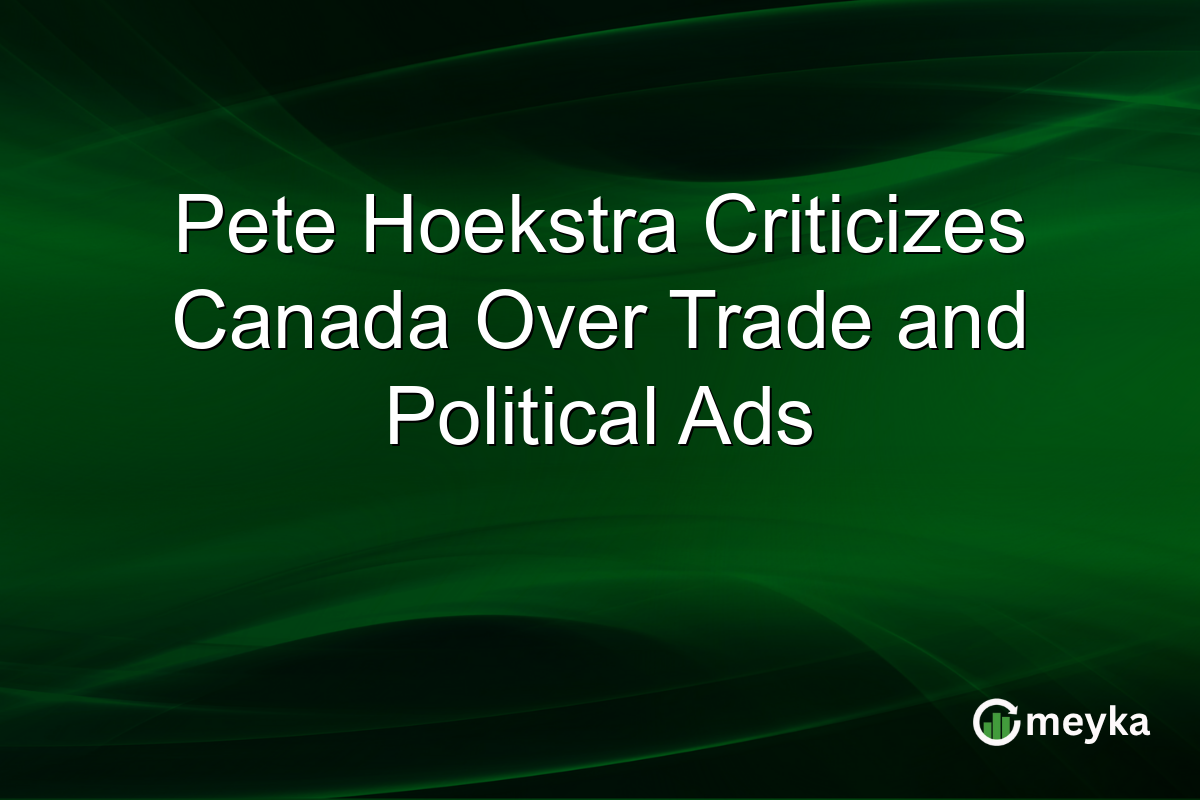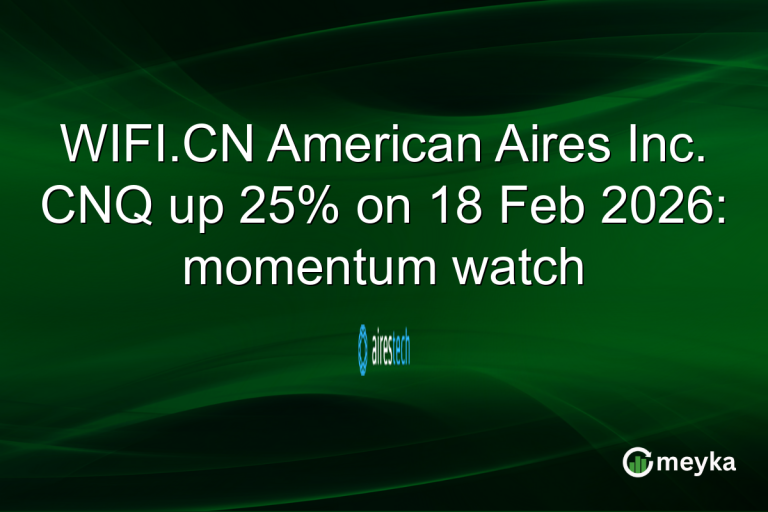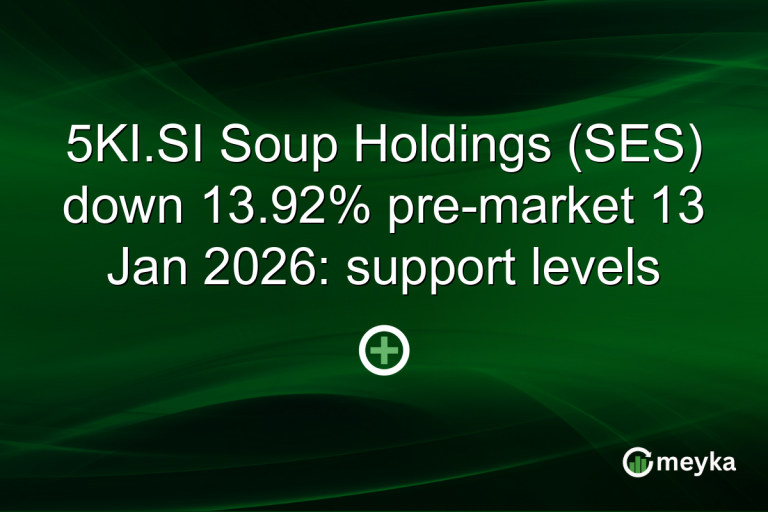Pete Hoekstra Criticizes Canada Over Trade and Political Ads
In a development reflecting the fragile state of Canada-U.S. relations, U.S. Ambassador Pete Hoekstra recently accused Canada of destabilizing ongoing trade negotiations. Hoekstra’s critique centers around controversial political ads that he claims interfere with U.S. domestic matters. This incident underscores the delicate interplay between political maneuvering and trade agreements, with potential repercussions on international markets if tensions continue to rise.
Continue Reading on Meyka
This article is available in full on our main platform. Get access to complete analysis, stock insights, and more.
Read Full Article →




